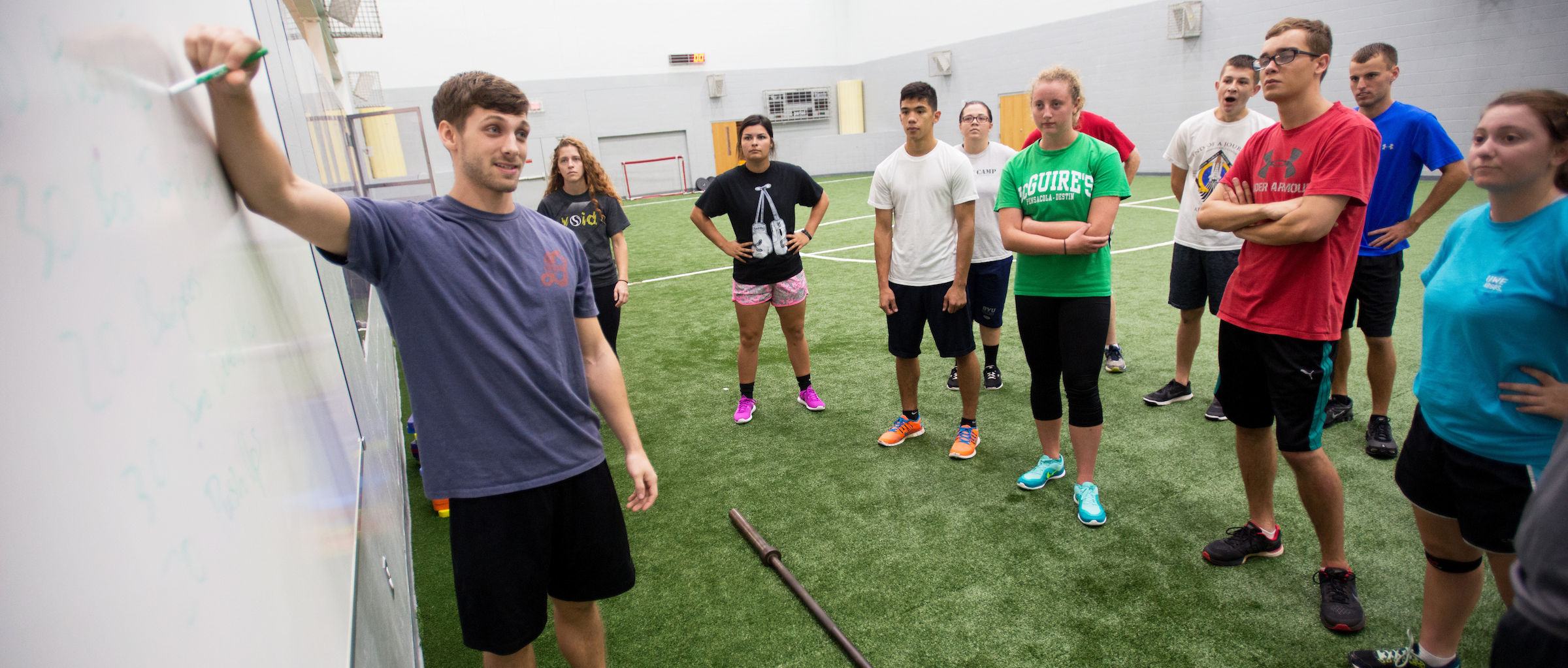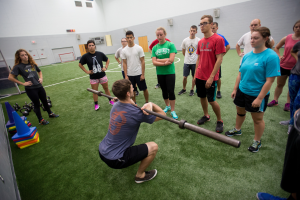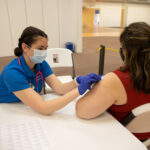Fighting Fat Is a Tactical Necessity for Military
Pensacola – Along with the entire U.S. population, our soldiers are getting heavier. Pentagon statistics show that the military is growing increasingly sedentary and out of shape.

For whatever the reasons – computers or cheeseburgers – this can lead to severe consequences for those in the military where obesity can not only cause severe health problems, it can also stall a career or lead to involuntary separation.
Researchers at the University of West Florida are developing a training program to help combat this trend.
Amy Crawley, an instructor in the exercise science and community health department, Dr. Ludmila Cosio-Lima, also of exercise science, and Dr. William Crawley, dean of the College of Education and Professional Studies have developed a tactical athlete training program using a more comprehensive athletic approach to military physical training.
The UWF researchers are also collaborating with the UWF Air Force ROTC and Army ROTC programs on this project.
Specifically, workouts are targeting the elements of strength, power, speed and agility to improve overall fitness levels. Professionals that would benefit from improved tactical athletic ability include military personnel, fire fighters and law enforcement officers.
This research project started in the Spring of 2016 as a pilot program and was composed of 24 volunteer Army and Air Force ROTC cadets (18 men and six women). These cadets were required to perform both the military and laboratory physical fitness testing as part of the fitness program.
Researchers are seeking to compare tactical athletic training with traditional military training.
Cadets in the tactical athletic training group participated in a 14-week-long resistance training program four days a week for an hour a day. This program was administered by two senior undergraduate students in exercise science, J.D. Wallop and Marisa Straughn, and supervised by Lauren Adlof, a graduate student in exercise science. These sessions involved heavy resistance training, metabolic conditioning, strength and power training and team-building activities.
A control group participated in the fitness testing and in the traditional military training procedures during the same period.

While both methods showed significant reduction in overall body fat, the tactical athletic training program also resulted in significant reduction in body fat in the abdominal and chest regions, where high levels of body fat have been shown to negatively impact cardiovascular and metabolic disease risk factors.
“This means we are not just training the cadets to perform better on their regular, required physical fitness assessment, which they did” Amy Crawley said. “We are helping them decrease their long-term risk for cardiovascular disease and improving their overall health.”
Another advantage is that tactical training is more varied than traditional, so the chance of repetitive motion injury is less.
“As a student here at UWF, it was rewarding to teach a group about physical fitness and watch them internalize the goal of getting healthier,” Wallop said about the opportunity to supervise the cadets.
Staughn also agreed that training the cadets was a rewarding experience.
“It was great to work with a group that showed up motivated and ready to work and with a positive attitude,” she said.
Amy Crawley said the research project is an example of high-impact collaboration between colleges, departments, programs, faculty and students at UWF. She is continuing the research this semester, and positive word of mouth has increased the number of cadets interested in participating in the study.
“The program worked very well,” said Michael Love, a sophomore Air Force ROTC cadet who participated in the tactical training last semester and decided to do it again this semester. “I improved from a 76 on my physical fitness assessment to an 86.”
An abstract of the Spring semester research results will be presented at the American College of Sports Medicine Conference in Denver in April.



